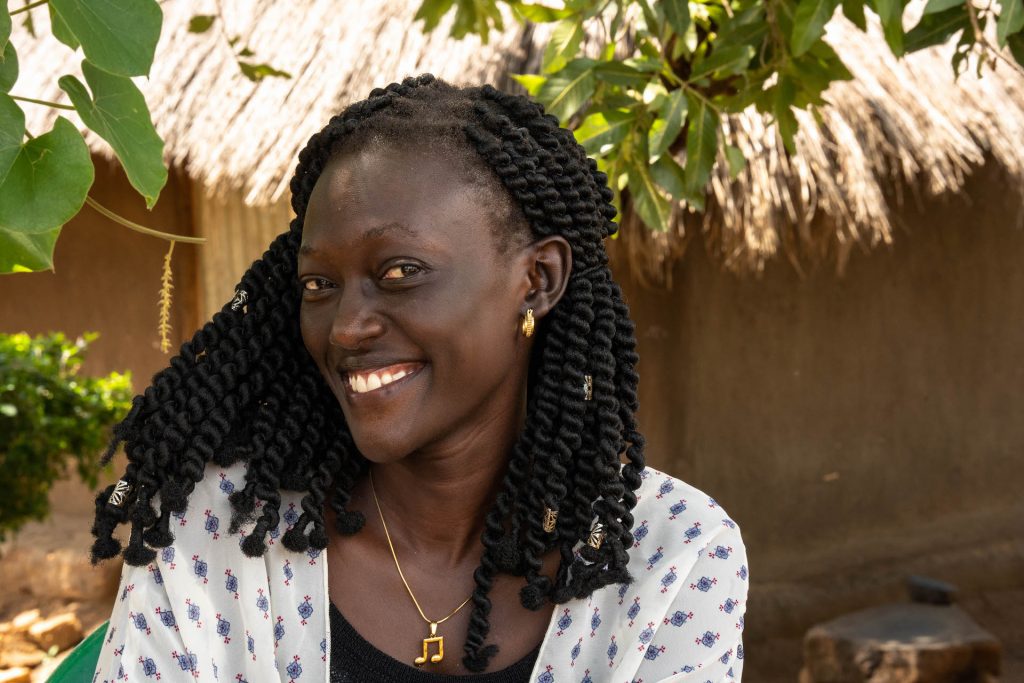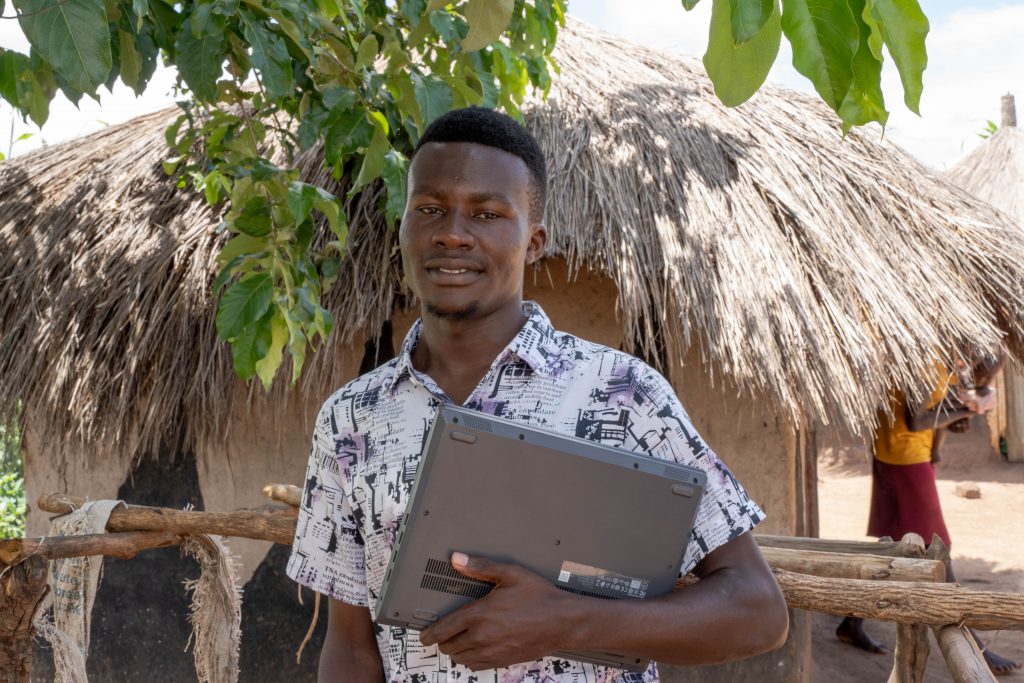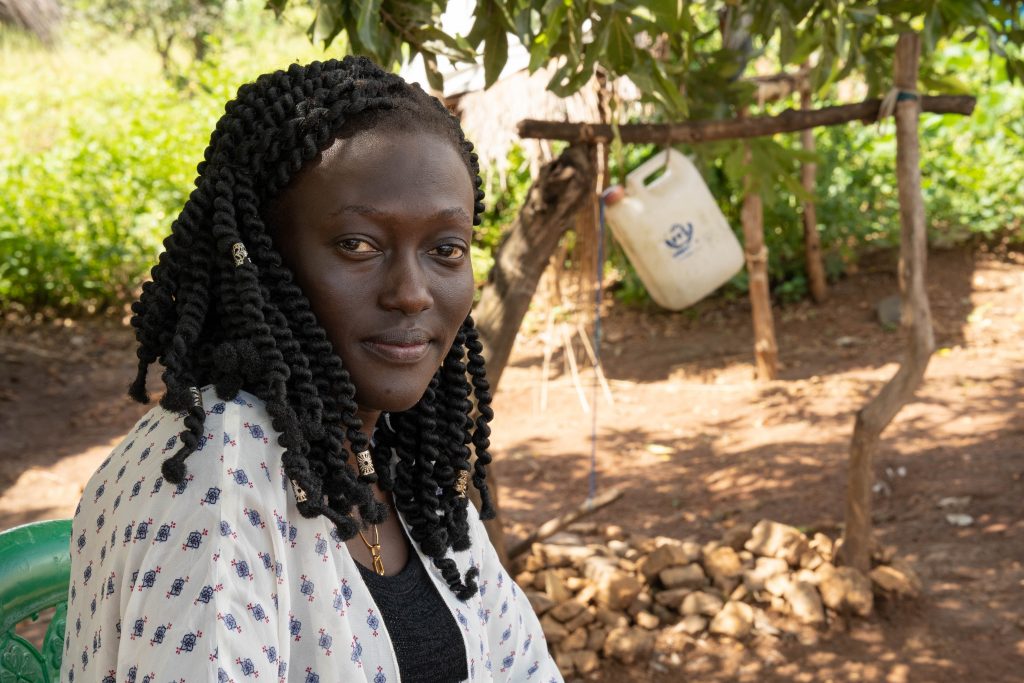“Getting an education means I learn to think in a different way” – young refugees are getting access to university studies in Uganda
For many bright young refugees getting access to higher education can be next to impossible. Tuition fees are high and the distance to proper universities long. That is why Finn Church Aid, in partnership with the UN Refugee Agency (UNHCR), supports young refugees with full scholarships to be able to go to university and obtain a degree.
“Studying at a university was a desire I always had, but I didn’t know how to get there”, says Anita Magret, a 24-year-old second-year student of Social Work and Social Administration at the Ugandan Christian University, one of the top universities in Uganda.
She is sitting at a fireplace outside a few small huts in Bidi Bidi refugee settlement, where she lives with her aunt while away from university for her internship. Many of the students return home for internships or when they are on leave.

Another Bidi Bidi resident and university student is Luate Richard, 22. He studies Microfinance at Kyambogo University in Kampala.
“Being able to study at a university means a lot. Nobody in my family had studied at a higher level before, so this opportunity means a lot for my family”, he tells us.
Both Luate Richard and Anita Magret escaped South Sudan with their families during clashes in 2016, and have been living in Bidi Bidi refugee settlement since then.
From refugee camp to university
The refugee settlement is one of the largest in the world, home to an estimated 270,000 refugees, over half of them children. Still, the number of learners advancing all the way to university is miniscule due to manifold challenges.
That is why Finn Church Aid, together with UNHCR, are supporting 53 learners with full scholarships. The scholarship makes it possible for students to attend their university of choice.d
“My hostel, my tuition and my upkeep are all covered. My family wouldn’t have any possibility to cover these kinds of expenses, so this is an answer to my prayers”, says Luate Richard.

“When it was confirmed that I got the scholarship my whole family was so full of joy, everyone was in tears. It was not easy to reach this point, but when I made it, everybody was very happy and excited”, says Anita Magret.
In addition, the scholarship also covered the unexpected expenses that came with COVID-19. The pandemic forced students into remote studies. Since access to the internet can be quite expensive in Uganda, that was covered too.
Bringing their talents back to their communities
Both Luate Richard and Anita Magret chose to do their mandatory internships in the refugee camp. In the future, they hope to be able to work in their communities.
“In microfinancing we try to find active poor, the ones who are willing to start businesses, finance their ventures and give them financial knowledge so that their business will be successful. I would like to do this in my own community”, says Luate Richard.
Anita Magret also intends to use her education to better people’s lives.

“I feel like I needed to go far to be able to come back and help people with what I learned in school. I want to improve the social well-being of my community and others in need.”
She already feels the opportunity of getting out of the refugee camp, going to university and meeting people with diverse backgrounds, has expanded her thinking.
“The change has been huge. I can really notice it now that I am back for my internship. I notice how I can bring everything that I learned into my work”, says Anita Magret, who is interning with the organization Hope Health Action, giving counseling and guidance to people in vulnerable states.
“It really moves me, when I am able to help. It feels like I chose the right field of work.”
Education opens up horizons
Luate Richard also sees education as a tool that opens up new horizons.
“Education is so important. Life is hard in the refugee camp, and it is easy to fall into a mindset where hardship and poverty is normal. Getting an education means I learn to think in a different way. Through that I have the opportunity to change things for myself and for my community”, says Luate Richard.
The young university students also see their studies as a possibility to be role models for their younger peers. Anita Magret thinks it is important that young people in the refugee camp are able to see that it is possible to achieve your dreams.
“I have been giving career talks for girls who are in secondary school. It is great to be able to show that you can access better things if you put your heart and efforts into it. I want to give the younger girls courage and hope, and make them believe in themselves.”
Text: Linda Kabuzire
Photos: Björn Udd